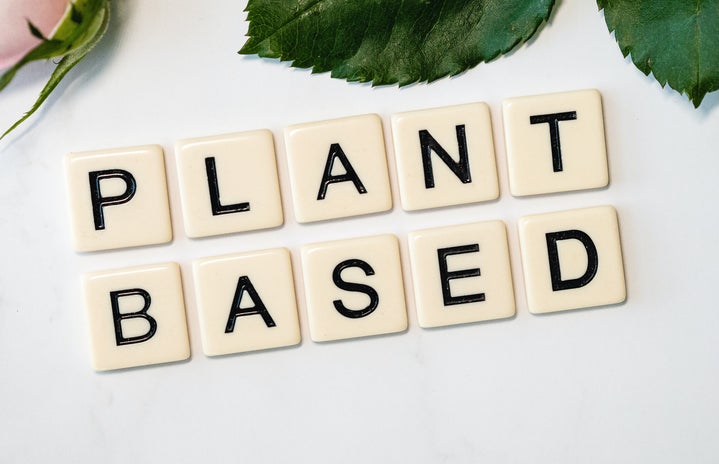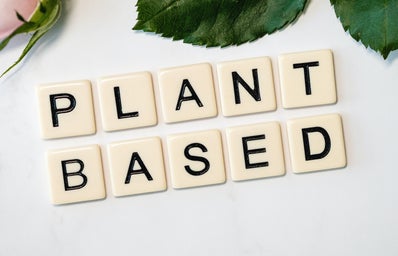A vegan diet is becoming more and more popular among people. It is estimated that there are around 600 000 vegans in Great Britain, as their number quadrupled between 2014 and 2019. I have been vegan for over a year and in this article, I share some of the reasons why I, and many other people, switched to a plant-based diet.
1. GHG emission
Greenhouse gases (GHGs) – the major factor of progressing climate change – are one of the hidden costs of our diet. According to FAO, livestock is responsible for 14.5% of all human-made GHG emission, out of which, the production of beef and milk is responsible for most of it – 41% and 20% respectively. These numbers show that limiting intensive animal farming is key in limiting the GHG emission.
The dangers of the GHG emitted by livestock also needs to be acknowledged. The most common GHG, and the one we are most familiar with, is carbon dioxide. Yet, there are other GHGs that are even more dangerous to our planet, such as methane. Methane, which is mainly generated by cows through their digestion and waste, is more potent than carbon dioxide. It absorbs more energy, preventing heat from escaping back to space and keeping it near to the Earth, warming our climate.
Therefore, we need to be aware that, through eating beef or drinking cow’s milk, we indirectly contribute to climate change more severely than we do while driving a car.
2. Water footprint
Our diet impacts the planet not only through the indirect contribution to GHG emission, but also through the water footprint of the products we eat. Water footprint measures the amount of water used to produce goods and services we use. A plant-based diet has a much smaller water footprint than a meat-based one.
Almost one-third of the water used in agriculture is directly or indirectly used in animal farming: for drinking, mixing the animal feed or maintaining the farm. These environmental costs of an animal-based diet could be reduced if we switched to a plant-based one. As studies show, the production of a 150-gramme soy burger requires 160 litres of water, while its beef counterpart needs astonishing 1000 litres of water.
3. Health
When it comes to eating a plant-based diet, we shouldn’t just focus on indirect consequences. Research, though slightly limited, shows that the adoption of a vegan diet may reduce the risk of developing some types of cancer by 15%, and when it comes to prostate cancer it could reduce it by even 35%. A vegan diet might also reduce the risk of developing ischemic heart diseases by 25%. This evidence shows that a vegan diet is generally healthier and therefore worth considering.
Moreover, intensive animal farming may have very tangible and health-related consequences for all of us. According to Humane Society International, the conditions in which stressed animals are kept, close to one another, are very favourable conditions for developing a new pandemic. Bringing wild and domestic species together might result in the mutation of pathogens and viruses which cause zoonotic diseases, such as COVID-19. Therefore, to avoid new pandemic outbreaks, global leaders should encourage people and farmers to shift from meat-based diets and animal farming to plant-based ones and agriculture.
4. Animal cruelty
This is the reason that most people are probably familiar with; vegans and animal rights activists advocate for switching to a plant-based diet to stop the suffering of animals, who, just like us, are living and feeling creatures. Intensive farming, which is focused on producing as much food in the shortest time, taking up the least amount of space, abuses animals to a great extent. Animals are kept indoors in overcrowded barns or cages. They are very often mutilated in order not to hurt each other. The unhealthy diets of these animals also cause a lot of pain as they may result in broken bones or organ failure.
There are no ‘better’ or ‘worse’ reasons to switch to a plant-based diet. Veganism is not only about protecting animals. It is mainly about protecting ourselves. To exist on this planet together, we should consider changing our habits, yet taking showers instead of long baths or switching to a bike instead of a car is too little. Our everyday food choices do influence the planet. They have huge long-term effects and indirect ‘costs’ that we should be aware of.
However, changing your eating habits rapidly may feel bewildering: where do I start? what should I eat? For this reason, you shouldn’t try to be a perfect vegan from day one if you are considering changing your diet. Instead, I recommend adjusting your diet to your needs, trying to eliminate certain products, such as meat or dairy. Educate yourself and read. Plan your meals and supplement necessary vitamins, such as B12, and I guarantee that once you have tried the possibilities of veganism, you will never want to get back to an omnivore diet!



